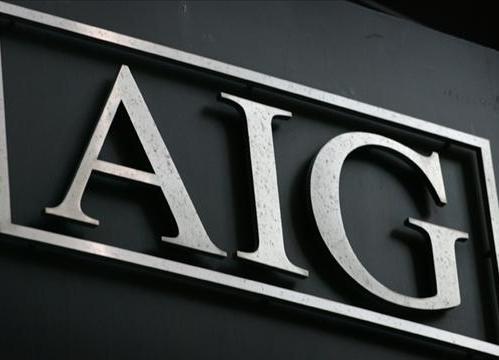
Memories can be short on Wall Street, but AIG (AIG) is setting new records for selective amnesia. The giant insurance company, which only recently finished paying off its staggering debt to the federal government, is now considering whether or not to file a lawsuit against the very institution that saved it.
In 2008, AIG was on the brink of bankruptcy. Its coverage of risky, mortgage-backed financial instruments — bad investments that lay at the heart of crisis that would launch the Great Recession — blew up in its face, leaving it with a downgraded credit rating and too little money to cover its bets. As its stock price plummeted, the Federal Reserve Bank stepped in with $85 billion, the largest federal bailout of a private company in American history. In return, AIG gave the government a 79.9% equity stake in the company.
But that was only the beginning: ultimately, the government loaned AIG a total of $182.3 billion, and took a 92% stake in the company.
Five years later, AIG has completely turned around. It has paid back that money — with interest — and is trying to rebuild its image with “Thank You, America,” an advertising campaign that highlights the company’s role in rebuilding places like tornado-devestated Joplin, Mo., Ground Zero in New York, and the East Coast areas devastated by Hurricane Sandy. The centerpiece of the push is this video:
It’s a savvy move. AIG’s public image has been largely dominated by its Great Recession excesses, including the impressive bonuses it gave many of its employees, the private plane its CEO Robert H. Benmosche demanded, and the high salaries its executives received. The company’s attempt to show its important role helping Americans recover from large-scale disasters could go a long way toward healing some very ugly wounds with the American people — and, not incidentally, their elected representatives.
adsonar_placementId=1505951;adsonar_pid=1990767;adsonar_ps=-1;adsonar_zw=242;adsonar_zh=252;adsonar_jv=’ads.tw.adsonar.com’;
Of course, that assumes that the company doesn’t do something colossally stupid like — for example — suing the government. Unfortunately, that’s exactly what AIG is considering doing right now. On Wednesday, its board will meet to decide whether or not to join in a $25 billion suit against the government.
The lawsuit, reports, is being spearheaded by Maurice Greenberg, AIG’s former CEO and a major stockholder in the company. It alleges that the government charged unreasonably high interest rates on its loans and that it violated the Fifth Amendment by seizing private property for public use without just compensation.
One might reasonably ask what could convince a company so recently out of debt and so deeply in the public relations doghouse to burn any small amount of goodwill in a high-profile lawsuit. The answer is “responsibility to shareholders” — a mantra that has increasingly become Wall Street’s version of the Nuremberg Defense. (“We were just following orders.”) AIG’s participation in the lawsuit could lead to a huge out-of-court settlement, which would be a major payday for the company and its investors, including Greenberg.
On the other hand, if AIG chose to sit this one out and Greenberg managed to squeeze money out of the government, the company’s other shareholders would not get any of it. Those investors could them claim that AIG had been negligent in , which would open the insurance company up to yet more lawsuits.
And so, the company finds itself at a crossroads: Does it trash its tenuous relationship with the public and its saviors in Washington, or does it take a stand against its stockholders and its former CEO? If past history is any indication, betting on AIG’s moral fiber in the face of a potential lawsuit — and potential profit — is a losing proposition.
#fivemin-widget-blogsmith-image-508352{display:none}.cke_show_borders #fivemin-widget-blogsmith-image-508352,#postcontentcontainer #fivemin-widget-blogsmith-image-508352{width:570px;height:411px;display:block}
 try{document.getElementById(“fivemin-widget-blogsmith-image-508352″).style.display=”none”;}catch(e){}
try{document.getElementById(“fivemin-widget-blogsmith-image-508352″).style.display=”none”;}catch(e){}
Get info on stocks mentioned in this article:
AIG
Manage Your Portfolio


Leave a Reply